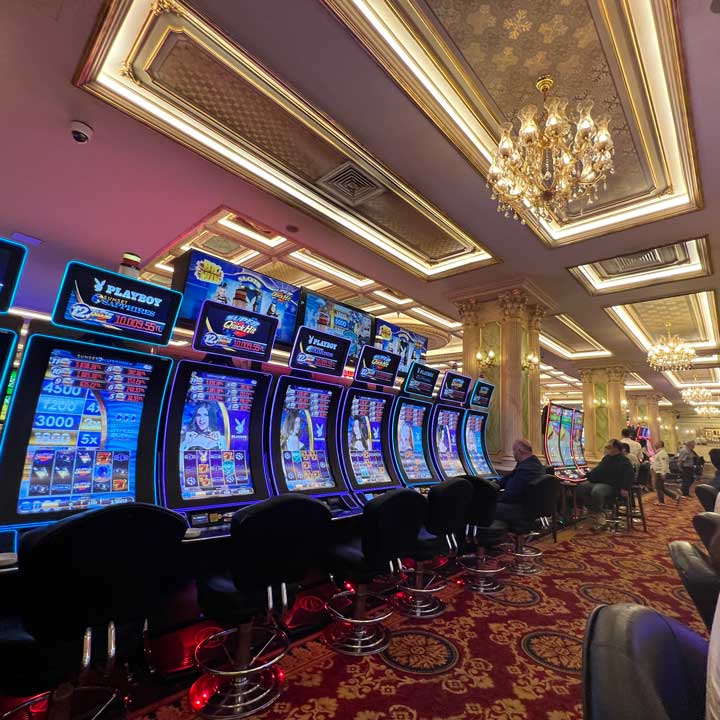Examining the Principles of Gambling Casinos
admin
- 0

Gambling in casinos has long been a subject of fascination and debate, drawing in millions of players around the world. With a mix of luck, strategy, and the thrill of risk, casino games offer an exciting escape from everyday life. However, as entertainment becomes ever more accessible, it invites a deeper examination of the morality surrounding these games.
At the heart of the debate lies the issue of whether casinos promote responsible gaming or exploit vulnerable individuals. The appeal of potential winnings versus the truth of losses can create a complex dynamic, and understanding this balance is essential for both players and operators. As we delve into the morals of casino gaming, we will explore the responsibilities of casinos, the effects on society, and the measures that can be taken to foster a healthier gaming environment.
The Impact of Casino Gaming on Society
Gambling in casinos has a considerable influence on the community, affecting not only the economy but also interpersonal dynamics and community structures. The revenue generated from casinos can lead to employment opportunities and boost local economies, as they provide various employment opportunities in different sectors including food and beverage, entertainment, and shopping. However, while the financial benefits can be substantial, communities often struggle with the potential negative impacts that arise from higher gambling activity.
Additionally, the presence of casinos can lead to an increase in gambling addiction, presenting significant challenges for individuals and families. The excitement of casino games can quickly transform into a compulsive habit, affecting personal relationships and leading to monetary issues. Many players may find it difficult with the loss of control over their gambling behaviors, resulting in a need for community support services and interventions to address this growing issue. The social cost of addiction can ripple through kinships and neighborhoods, creating an urgent need for sensible gambling approaches.
In addition to the economic and social ramifications, casino gaming often showcases cultural attitudes towards uncertainty and leisure. It can foster a sense of excitement and leisure, attracting visitors and boosting local travel. However, this allure may also mask the broader implications of gambling as a method of entertainment, raising ethical questions about its promotion and accessibility. As communities weigh the advantages and disadvantages of casino gaming, the need for responsible practices and oversight becomes increasingly critical in ensuring that the positive aspects are maximized while minimizing the negative effects.
Moral Issues in Betting Practices
The morality of casino gaming often center around the risk for dependency and its consequences on individuals and families. Gambling can lead to serious financial distress, impacting not only the betters but also their families. As individuals become entrapped in the allure of winning, many lose sight of their budget, which can result in catastrophic results such as bankruptcy. This raises ethical questions about the duty of gambling establishments in promoting safe gaming habits and offering support for those who may be struggling with gambling addiction.
Another critical issue is the promotion of betting to at-risk populations. Gambling establishments often aim at low-income people or neighborhoods with the promise of quick rewards, which can perpetuate patterns of financial struggle and hopelessness. In this situation, the ethics of advertising strategies used by gambling establishments come under scrutiny, as they may take advantage of the desperation of people seeking an escape from economic troubles. This exploitation raises moral questions about the honesty of the gambling industry and its obligation to protect its most at-risk patrons.
Additionally, the effect of gambling operations on society as a whole cannot be ignored. While some argue that gambling establishments create employment and stimulate local economies, others point to the community costs associated with problem betting, increased criminal rates, and a strain on public services. Balancing financial advantages with the potential for community issues presents a complex moral dilemma for policymakers and gambling operators alike. non GamStop online casinos UK The challenge lies in finding a responsible approach that prioritizes the welfare of individuals and society while still allowing for the pleasure of gambling activities.
Regulation Framework and Responsibilities
The legal system pertaining to casino operations is developed to ensure justice, integrity, and gambler security. Various government agencies and casino commissions establish and apply regulations that dictate how gambling activities operate, the criteria for game development, and the protocols for handling prizes. These regulations change by region but typically involve permit requirements for providers and strict measures to avoid deception and scams.
In furthermore to governing bodies, gambling operators bear considerable accountability in preserving ethical standards within their facilities. They must adopt responsible gaming practices that support player security and awareness, including providing self-exclusion options and providing information about the hazards connected to betting. Operators are also obligated for educating workers to identify signs of difficult betting and know the appropriate steps to support visitors in need.
Additionally, clarity in gaming operations is vital for building and preserving public trust. Casinos should provide clear details about the probabilities of operations, promotional opportunities, and any related risks. By creating an environment of transparency and accountability, gambling establishments can help reduce the likelihood negative impact of gaming while enhancing the general gambling experience for all gamblers.